The top spokesman for the Taliban regime of Afghanistan, Zabihullah Mujahid, repeated the terrorist organization’s claims on Monday that the Islamic State Khorasan Province (ISIS-K), the jihadists’ Afghan affiliate, had been “significantly weakened” in the country under Taliban rule.
Mujahid was responding to comments by Rep. Michael McCaul (R-TX) condemning President Joe Biden for his extension of the 20-year Afghan war in 2021, a policy decision that directly led to the collapse of the legitimate government of Afghanistan and the return of the Taliban jihadist gang to power. McCaul reportedly stated that the extension of the war followed by an abrupt withdrawal of U.S. forces in August 2021 “puts us in danger where this is a new battleground training ground” for jihadist organizations such as the Islamic State, according to the Afghan agency Tolo News.
WATCH — Rubio: ISIS-K Would Love to Do What They Did in Moscow Here Inside the United States:
The Islamic State, and ISIS-K specifically, raised international alarm after claiming responsibility for the indiscriminate killing of civilians at a concert venue in the suburbs of Moscow, Russia, on Friday. At least four gunmen stormed the Crocus City concert hall and mall complex on Friday night, immediately before a concert by the rock band Piknik, and opened fire on crowds. One of the assailants reportedly set the venue on fire, killing several of the victims via smoke asphyxiation and burning. As of Monday, Russian authorities placed the death toll at 129 people and documented over 180 injured. Response teams are still clearing the wreckage of Crocus City at press time.
The Taliban initially responded to the attack by condemning it and extending solidarity to the Putin regime, with which it maintains friendly ties. It has rejected any association with the attack.
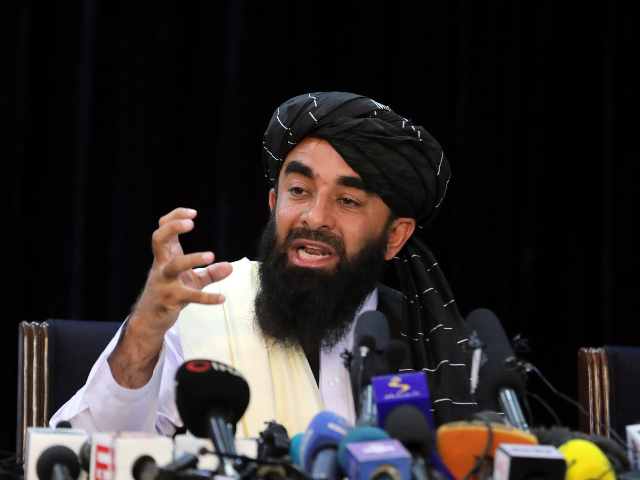
Taliban spokesman Zabihullah Mujahid speaks at his first news conference, in Kabul, Afghanistan, Tuesday, Aug. 17, 2021. (AP Photo/Rahmat Gul)
“Daesh [ISIS] has been significantly weakened compared to when American forces were here [in Afghanistan], and the forces of the Islamic Emirate of Afghanistan [the Taliban] have used all means to suppress Daesh,” Mujahid, the top Taliban spokesman, said on Monday, according to Tolo News. “Even if Daesh remains here 1 or 2 percent, they can neither recruit soldiers here nor can they create a threat.”
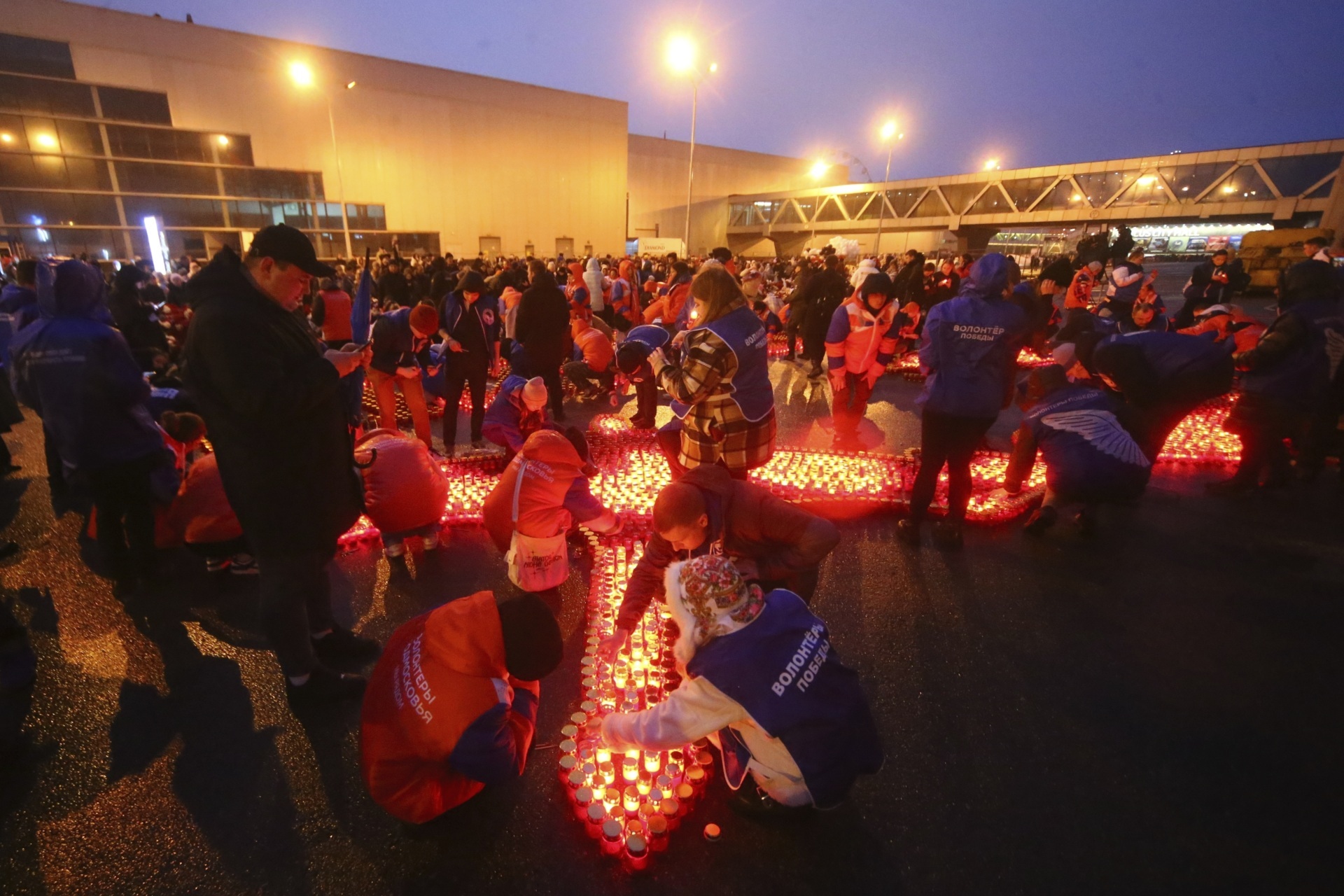
People light candles and lay flowers at a makeshift memorial in front of the Crocus City Hall on the western outskirts of Moscow, Russia, on Sunday, March 24, 2024. (Sergei Vedyashkin, Moscow News Agency via AP)
Tolo News also quoted several “military and political experts” who insisted ISIS “does not exist in Afghanistan.”
“The main source of terrorism is America, and this country has created proxy groups and wants to achieve its goals through these means,” one of those “experts,” Kamran Aman, told the news network.
The Biden administration, which had warned on March 7 of a potential “imminent” attack on a concert venue in Moscow, issued remarks following the attack that it had reason to believe ISIS-K’s claims of responsibility were accurate. Senior intelligence officials in Russia have since blamed the United States for the attack; some officials, including strongman Vladimir Putin, have also implicated the government of Ukraine in the attack. Ukrainian government officials, in turn, have accused Russia of orchestrating the attack on itself.
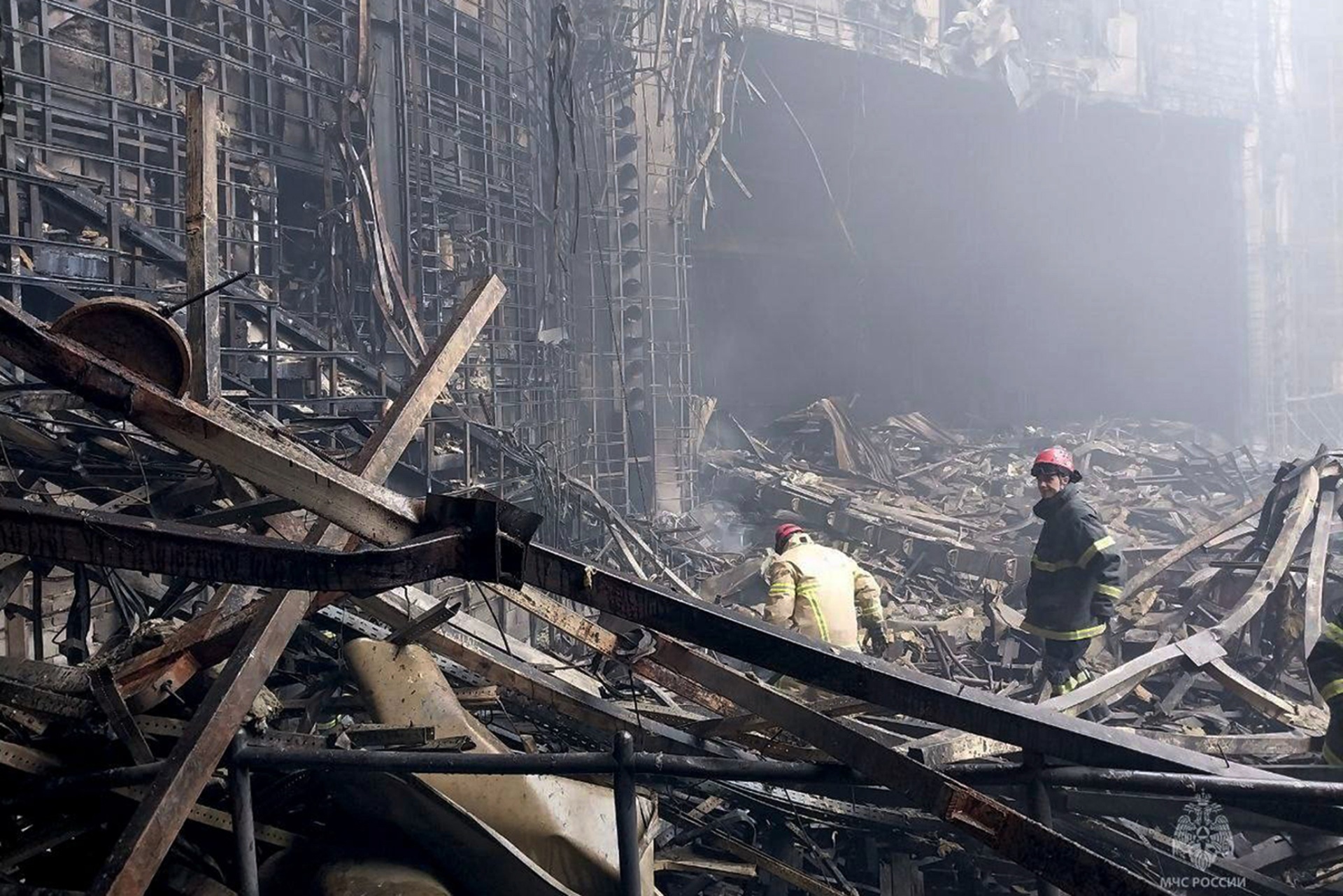
In this photo released by Russian Emergency Ministry Press Service on March 23, 2024, firefighters work in the burned concert hall after an attack on the building of the Crocus City Hall on the western edge of Moscow, Russia. (Russian Emergency Ministry Press Service via AP)
The Islamic State itself, apparently to restore attention to itself in the aftermath of the attack, released a 30-page screed in the Pashto language of Afghanistan on Monday, replete with “pictures of the alleged attackers of the concert, IS-K’s other attacks in Afghanistan, and photos of Taliban leaders and ministers standing with U.S., Chinese, Iranian and Pakistani officials,” according to Voice of America. ISIS-K had previously published videos of the massacre allegedly taken by the terrorists themselves in real time as proof of their involvement.
The ISIS-K statement published on Monday directly condemned the Taliban, falsely claiming the jihadists are “allies of the United States” and condemning the Taliban for seeking friendly relationships with the non-Islamic governments of Russia and China, among others.
“Talib militias are now part of the infidel nation. It is, therefore, natural that they will sympathize with them and will share sorrows with the infidels,” the screed reportedly read.
The outrage against the Taliban appears to be a response to the jihadists’ initial condemnation of the attack.
The Taliban, “foreign ministry” spokesman Abdul Qahar Balkhi said on Saturday, “condemns in the strongest terms the recent terrorist attack in Moscow, Russia, claimed by Daesh & considers it a blatant violation of all human standards.”
IEA-MoFA condemns in the strongest terms the recent terrorist attack in Moscow, Russia, claimed by Deash & considers it a blatant violation of all human standards.
Daesh, which has targeted civilians in Afghanistan & other regions of the world as well, again cearly demonstrated pic.twitter.com/iJT7yqZbNx
— Abdul Qahar Balkhi (@QaharBalkhi) March 23, 2024
The Taliban-controlled Bakhtar News Agency added that Balkhi described ISIS as “a group in the hands of (intelligence) organizations whose aim is to discredit Islam and pose a threat to the entire region.”
The four men the Russian government has identified as the shooters in Crocus City are of Tajik background and, at press time, Russian authorities have offered no evidence that they trained in Afghanistan or have any ties to the country. Recent reports have indicated that ISIS-K has grown its membership into the thousands by recruiting among Central Asian Muslims – including Tajiks, Uzbeks, and others – who face discrimination in neighboring countries such as Russia and Afghanistan.
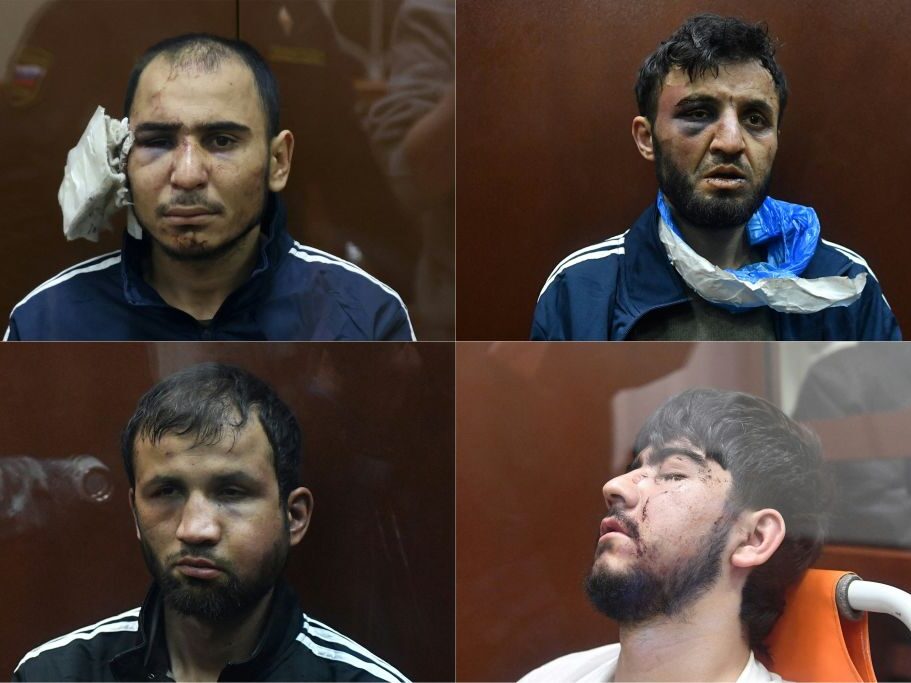
This combination of pictures created on March 24, 2024 shows (Clockwise from top L) Rachabalizoda Saidakrami, Dalerdjon (alternatively spelled Dalerdzhon) Barotovich Mirzoyev, Muhammadsobir Fayzov and Shamsidin Fariduni suspected of taking part in the attack of a concert hall that killed 137 people, the deadliest attack in Europe to have been claimed by the Islamic State jihadist group, sitting inside the defendant cage as he waits for his pre-trial detention hearing at the Basmanny District Court in Moscow overnight March 24 and 25, 2024. (TATYANA MAKEYEVAOLGA MALTSEVA/AFP via Getty Images)
“A Taliban intelligence official estimated that 90% of ISIS-K’s cadre is now non-Pashtun. Tajiks and Uzbeks are the other large ethnic groups that populate the north of Afghanistan,” Reuters reported on Tuesday. Reuters noted that over a dozen sources had agreed in conversations with its journalists that “ISIS-K had exploited the Taliban’s failure to eliminate its safe havens in northern and eastern Afghanistan to expand regionally.”
The Indian newspaper The Hindu similarly reported this week that ISIS-K “has training centres in the Taliban-ruled Afghanistan” and “has recruited thousands of disgruntled Central Asians.”
“The IS-K also launched propaganda videos targeting Afghanistan’s ethnic minorities such as Tajiks and Uzbeks, who were excluded by the Taliban’s Pashtun-only regime. Russia and its President Vladimir Putin emerged as the key enemy in the IS’s propaganda videos,” it observed.
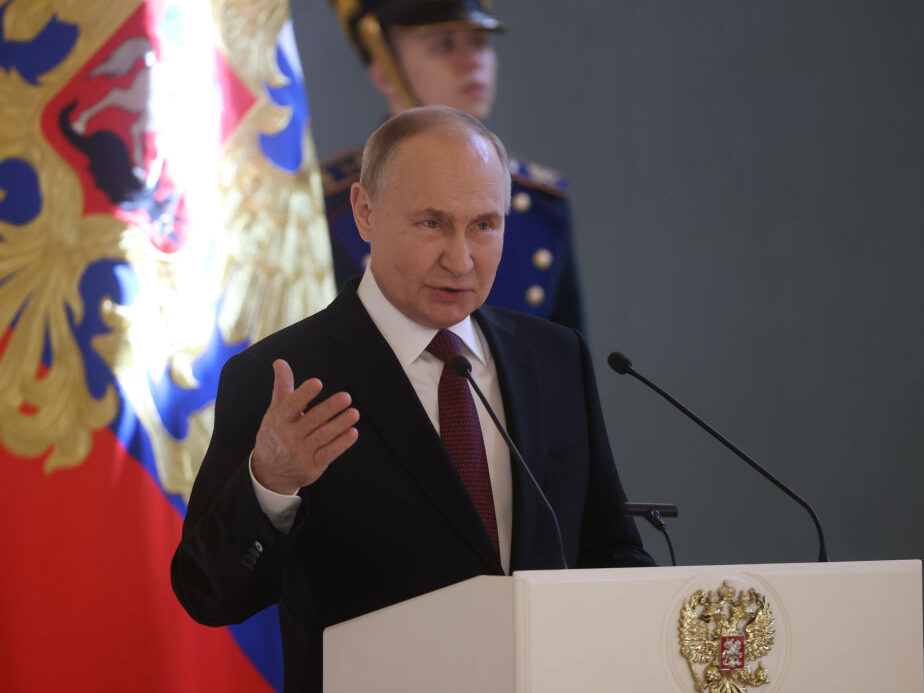
Russian President Vladimir Putin gestures during his meeting his supporters at the Grand Kremlin Palace on March 20, 2024, in Moscow, Russia. (Contributor/Getty Images)
As recently as September, members of the Biden administration were crediting the Taliban for allegedly limiting the ability of ISIS-K to pose a threat.
“They have a very aggressive violent offensive ongoing that has significantly degraded ISKP [ISIS-K] capability,” U.S. Special Representative for Afghanistan Tom West said in September. “I think it’s notable that since early 2023, Taliban raids in Afghanistan have removed at least eight key ISKP leaders, some responsible for external plotting.”
West’s comments contradicted the contents of an alleged leaked Pentagon document made public in what was later known as the “Discord leaks” in April 2023, which claimed “ISIS has been developing a cost-effective model for external operations that relies on resources from outside Afghanistan, operatives in target countries, and extensive facilitation networks.”
Zabihullah Mujahid dismissed the leaked report as a “fake document.”
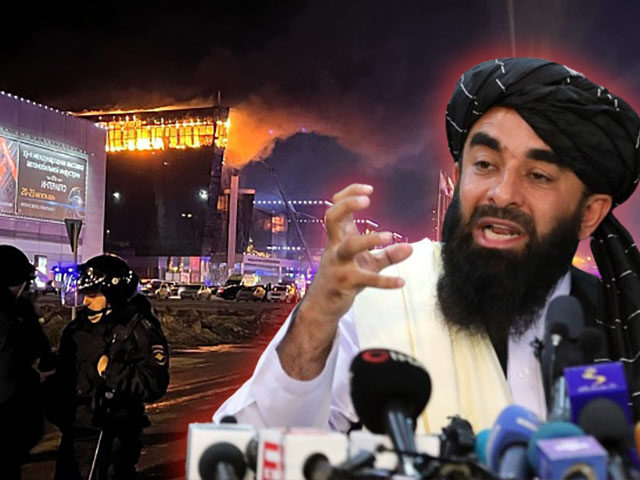
COMMENTS
Please let us know if you're having issues with commenting.